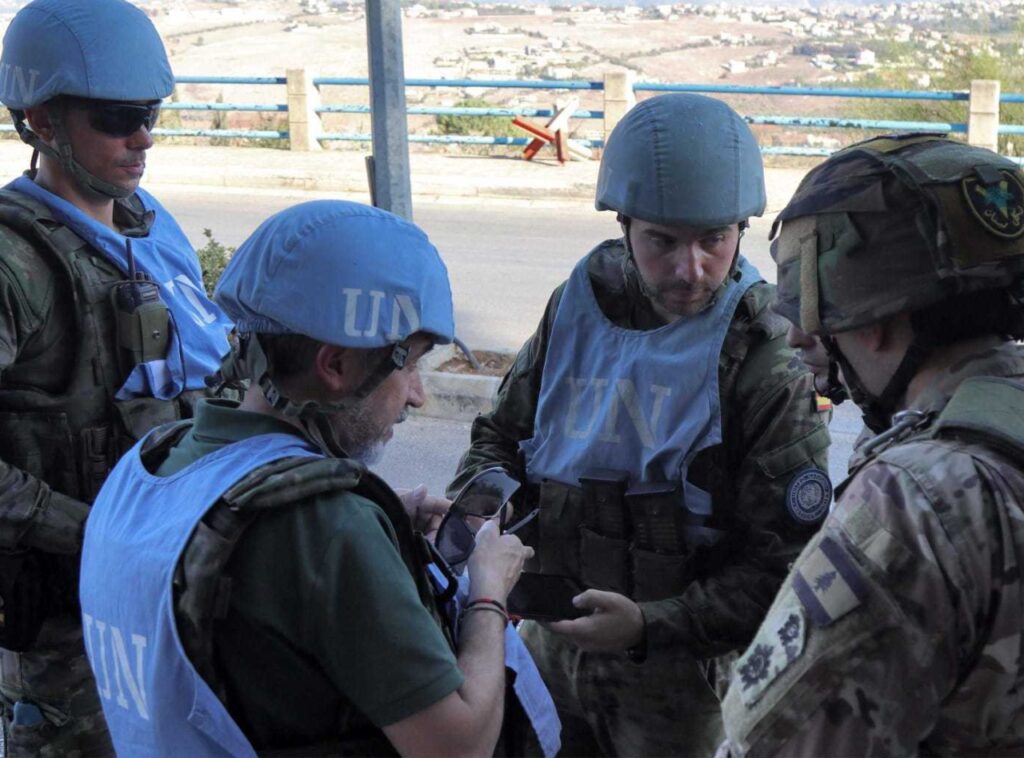UN peacekeeper confronts escalating conflict in Lebanon, committed to maintaining peace amid attacks
From the bunker, some of us glimpsed through the cracks as flashes of fire lit up the sky, painting it red and orange. Each explosion illuminated the darkness, casting long shadows. The acrid smell of gunpowder and dust filled the air as projectiles pierced through it.
- 1 year ago
November 13, 2024
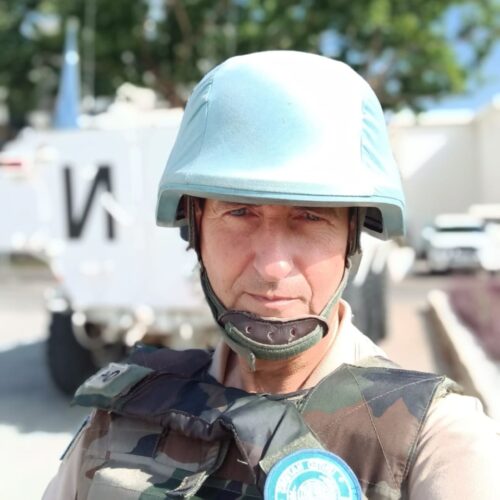
NAQOURA, Lebanon — As a child, military uniforms and heroic stories fascinated me. At 14, I felt the weight of true commitment when my military school instructor, a figure I deeply admired, said his goodbyes. He left for a war zone and never returned. That tragic experience left a lasting impact on me.
Later, when my military career with the Argentine Army ended, I received the long-awaited news about my assignment to the Blue Helmets [a military peacekeeping unit with the United Nations] in Lebanon. Pride swelled within me, knowing I would finally apply my training to a challenging mission. I saw this assignment as a dream come true, despite the immense risks.
UN peacekeeper embarks on a mission to Lebanon amid rising conflict
After completing my military career, I drew strength from the lessons my military school instructor taught me. These lessons gave me the resolve to face the unexpected as I prepared for scenarios I only imagined. However, I never expected to take on a mission that would demand the level of commitment I faced in Lebanon.
When I got selected for the peace mission, I traveled through Ethiopia to Lebanon, with each stop pulling me farther from home. Feeling the growing tension in the air, anxiety engulfed me as I boarded the plane. When I stepped off the plane in Addis Ababa, Ethiopia, the heat instantly egulfed me. The smell of spices and dust filled the air, immersing the place in stories.
I never traveled to Africa, so seeing names like Congo and Sudan on the plane’s screen filled me with fascination and bewilderment. Every detail felt new and strange, forcing my senses to work twice as hard to absorb it all. Each step away from familiarity reminded me I was outside my comfort zone, exposed to a vast, unfamiliar world. The transit became an odyssey. I spent hours in an airport suspended in time, with no internet or contact, only my thoughts.
Each minute brought me closer to a place resembling another planet. At last, boarding the next flight to Beirut brought relief as I knew I neared my final destination. When the plane took off from Addis Ababa toward Beirut, I felt it pull me farther from everything I knew. As time passed, the weight of the unknown grew heavier. Beirut drew nearer with every second, and while I tried to relax, my mind raced. I imagined what awaited me when I set foot on Lebanese soil.
From the window, I saw the coastline and the lights flickering in the distance, as if the city itself was breathing. I knew stepping onto the ground would change my life forever as I entered a land engulfed in conflict. Finally, after 30 hours of airport layovers, I entered Lebanon on June 5, 2024.
Peacekeeper heads to Naqoura, stepping Into Lebanon’s war-torn region
Beirut greeted me with clear skies and dry heat. The streets felt caught between the city’s hustle and an uneasy silence preceding a storm. Every sound and shadow heightened my senses as if something deep within me already understood the gravity of the mission ahead. The missile-damaged buildings and helicopter hums revealed the war’s permanent presence, like a looming shadow.
Amid the uncertainty, I felt as if I crossed the world, a knot tightening in my stomach as I headed toward Naqoura, the mission headquarters. The van drove us deeper into a dusty, desolate landscape. Most villages we passed lay deserted, their doors and windows shut tight. In the distance, the mountains blurred through swirling dust. With every mile, my chest tightened as the van’s wheels turned, reminding me of everything I left behind thousands of miles away. No one stood on the streets; only a few people peeked out and watched as the van passed by.
After traveling for hours, we reached the barracks in Naqoura, where concrete walls enclosed a base spanning five kilometers. The scene felt like a blend of military reality and surrealism. As we approached, I immediately saw the blue line, a symbolic barrier marked by a row of blue barrels, each painted with the white UN acronym. They stood like sentinels along a border heavy with tension, separating two conflicting worlds. The surrounding terrain appeared barren, with scattered rocks and sparse vegetation.
Peacekeeper faces level three alert, leading a team into the bunker
From the barracks, they took me to a metal container, which served as my dormitory and temporary refuge. I settled in, laid down my belongings, and closed my eyes to relax. Despite the adrenaline coursing through me, I felt alive. As I realized the mission’s responsibility, I knew our fundamental role was to protect the peace. At that moment, I understood our presence could make a significant difference.
Moments after I settled in, the alarm blared with a level three alert, the highest possible. The prolonged, repetitive roar filled the air, shattering the calm. Instinct urged me to freeze, to stay still, but I quickly forced myself to focus, remembering the years of training I needed to call upon right then and there.
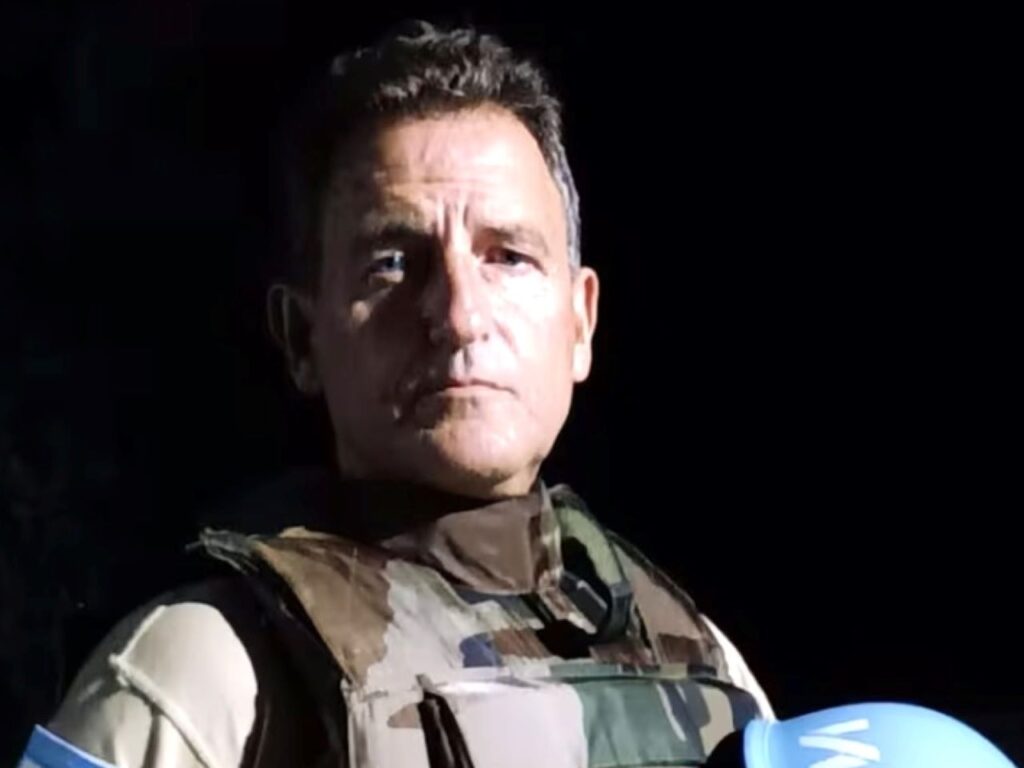
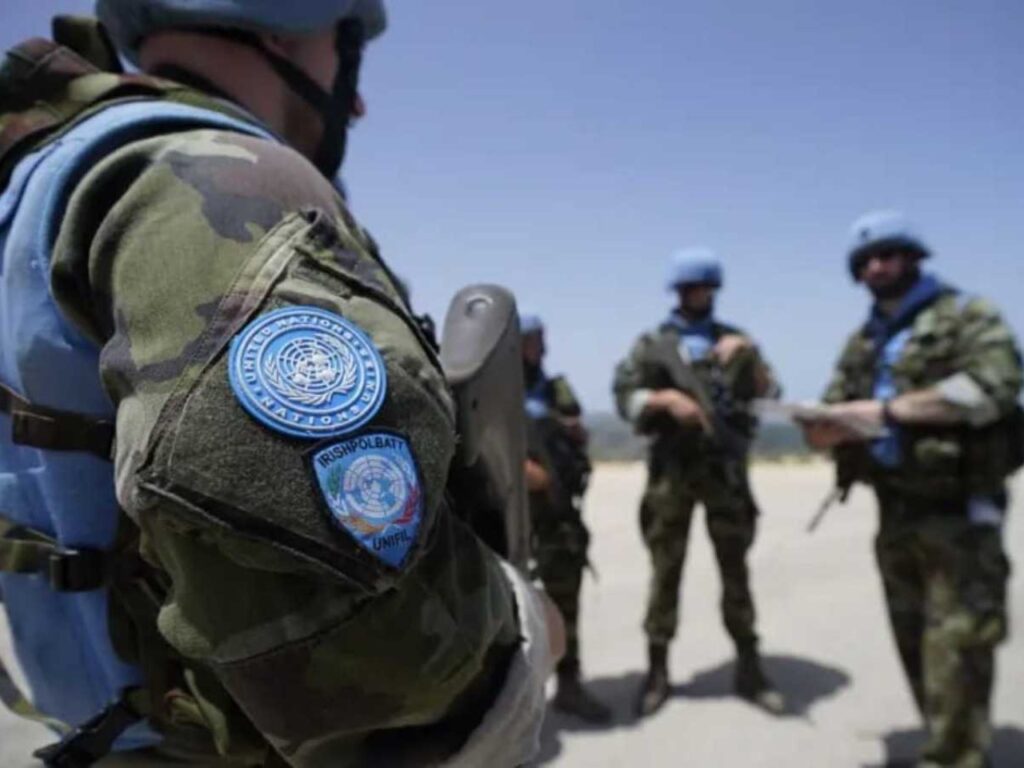
Strapping on my helmet and bulletproof vest, I followed the protocol while my mind struggled to keep up. My legs grew heavy as I sprinted to the bunker, each step a sharp reminder of my vulnerability amid the constant danger. Adrenaline pulsed relentlessly in my ears as the sirens wailed. However, I stood ready to face whatever lay ahead.
The bunker swallowed us like a concrete cavern. Tension filled the faces around me as silent questions reflected in their eyes, questions no one could answer. Nevertheless, as the leader, I had to stay calm. I needed to offer refuge, providing a sense of stability for everyone. Though I arrived only hours before, I took charge and centered myself on the group.
Man remains calm in the dark bunker
Inside the bunker, the air thickened as if stagnant, like the outside world paused. The sound of war surrounded us as each explosion outside reverberated like a distant echo. Staying still was our only choice. Some stared into space, losing themselves in thought, while others focused on their boots, the walls, or the door. They waited for the next step, unsure how long we would remain trapped in this uneasy stillness. No one spoke much as silent glances passed between us as we sought comfort in the chaos.
Amid the relentless fear, I remembered my family, imagining the faces of my wife and children. Life in the bunker unfolded like a recurring dream. We woke up repeatedly, only to re-enter the same cycle. Night after night, explosions rattled the air, leaving us wide awake in a terrifying silence as the walls vibrated and dust rained down from the ceiling. I remember some of my comrades trembled as they tried to stay calm.
With each passing moment, the darkness in the bunker thickened. We caught broken sleep, only for the rumbling to interrupt it. When we finally stepped out of the bunker, the outside air refreshed us, as the wind swept away the weight of war. In the distance, I saw smoke rising as constant threats loomed close by. Despite the rising tension, my comrades and I exchanged relieved glances. I led my team even as I experienced my own anxiety. Every day in this conflict-ridden land, I learned peace requires active resistance.
Each siren, a reminder of war’s unrelenting cost on human lives
One day, after a rare calm allowed us to emerge, I stood beside an Italian colonel. Both of us just surfaced from the bunker following severe bombings. Suddenly, we heard a siren as our eyes fixed on the horizon. The ambulance raced down the hill, cutting through a cloud of dust. It swerved urgently along the road, fleeing from impending death. Speeding northward toward the only open route, its frantic pace wrapped us in its desperation.
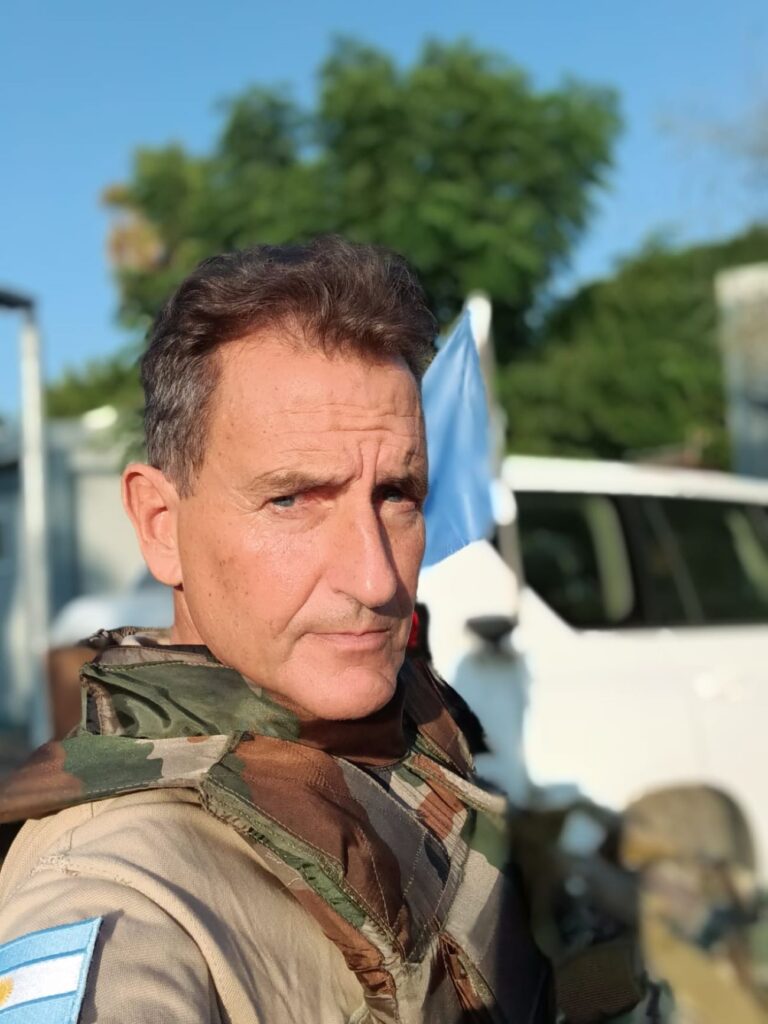
As the ambulance disappeared into the dust, it left behind it the stark reality of human suffering. Soon, smoke and blasts shook our shelter with new, personal meaning. We knew the siren signaled something irreversible: a father, brother, or mother in silent anguish. Sadly, the explosions we learned to ignore now wore a human face, with pain repeating itself with every passing second.
When we exchanged a look, I saw the same feeling in the colonel’s eyes, unbearable sadness and bitterness, surpassing exhaustion. Walls and armor sheltered us, but each explosion marked a life lost or a home reduced to rubble, signaling death. Though we remained spectators, the conflict raged on, claiming more than just buildings and walls. With each siren, it took more lives, one after another. Witnessing the devastation, I felt a deep jolt within myself.
War shatters man’s dream of celebrating his daughter’s birthday at home
When the sirens blared, I thought of my family. It felt like a momentary escape to safety. In my mind, I planned every detail of my journey home, marked it on the calendar, and repeated it in my head. On September 15, 2024, I was ready to board my flight to see my children and wife for my daughter’s long-anticipated 15th birthday party. We had eagerly awaited this celebration for years. However, within hours, the conflict shattered my plans.
What I once saw as safe routes now posed deadly risks as airports turned into battlegrounds where commercial flights stopped operating. When I heard my flight was canceled, it felt like a door slammed shut with an unforgiving thud. Shattered, I cried out. That night, as I crouched in the bunker during a nearby attack, I thought about how different her day was supposed to be. In my mind, I saw her smile and her eyes sparkle with joy. I imagined dancing with her, surrounded by my loved ones, twirling to the music as her dress swayed with every step.
Her happiness played out in my mind, sparking a bittersweet excitement in me. Though we remained far apart, I carried her in my heart. As I sank deeper into my thoughts, gunfire suddenly reverberated between the concrete walls. Through the observation windows and openings, smoke began to rise. I felt panic rush beneath my skin. A sudden urge to run erupted, but an inner voice reminded me why I was there. As soldiers and observers from around the world, we shared fear, responsibility, and determination. We clung to the mission’s protocol as reality struck hard. Explosions shook the bunker, pulsing through our chests and quickening our heartbeats as we fought to breathe.
Despite violent attack, UNIFIL stays resolute in Its mission
Within a few minutes, chaos gripped our mission. From the damaged observation tower, the responders rushed to aid wounded comrades. The situation in the barracks froze for a moment. We all wanted to run to them, to check on their safety. Despite the attack and injuries, UNIFIL decided to stay. Despite Israel’s recommendation to withdraw north, we remained firm, upholding our peacekeeping duty along the Blue Line. The attack violated international humanitarian law and Security Council Resolution 1701. Any aggression against the Blue Helmets is considered a crime.
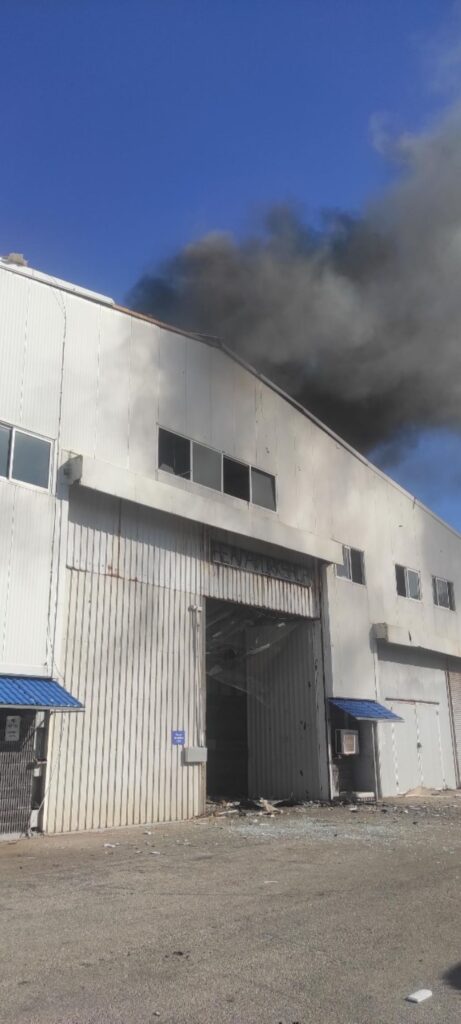
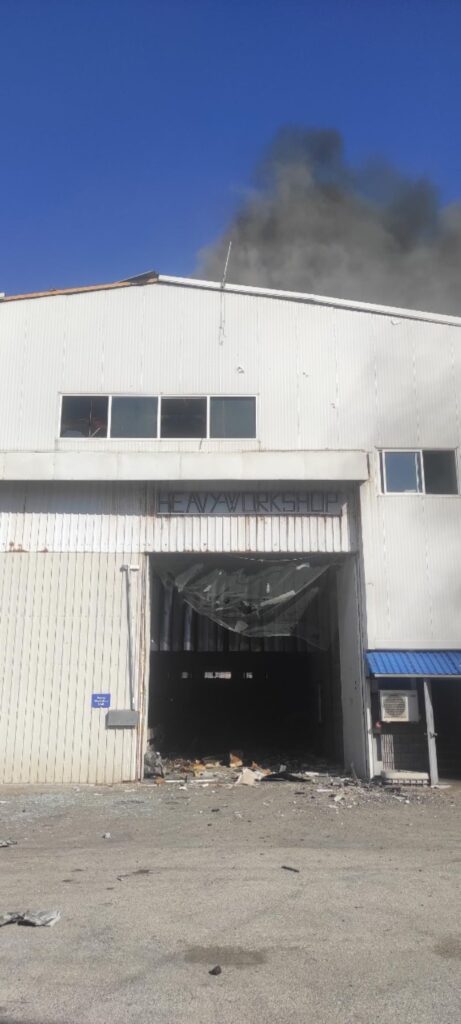
Amidst all of these experiences, Tyre [the fifth largest city in Lebanon] stood out as one of the few places where life still pulsed through the streets. Just 15 kilometers from the base in Naqoura, Tyre offered us a temporary refuge. It was a city where we could buy supplies, stroll through its streets, and watch people come and go. The residents strove to live a life resembling that in any other city around the world. The beach stayed open, the markets filled with fruits and spices, and the streets bustled with stores and small cafes. I vividly recall the lively energetic people, who, despite everything, kept pushing forward.
Bombardment leaves Tyre in ruins
From the base in Naqoura, I now watched a column of smoke rise from Tyre. The relentless bombardment shattered the city, reducing it to dust with each strike. The locals fled north, abandoning their homes, businesses, and memories. Each explosion consumed more, leaving behind only remnants, the echoes of a past life.
Walking through Tyre now feels like stepping into a soulless place. It shakes and unsettles me, like descending into a tomb. Fallen lamp posts, broken glass, and torn doors stand as grim witnesses to the war. Every time I go there, a deep sadness fills me as I see those deserted streets. I think of the displaced people, the memories buried in rubble, and the interrupted dreams of those who once lived here. Everything vanished. Tragically, Tyre and its people, like many others in this conflict, bore the steep price of war.
With each passing day, the responsibility grows heavier. I see the fear in my comrades’ eyes as I provide hot food, guiding them to rest for a few hours to regain strength. Many times, I stay in the bunker, helping others, realizing how my role extends beyond the military. Undoubtedly, this mission is not just about wearing a uniform. It is about showing the people we are all in this together. None of us face this war alone. Knowing I can support them helps me forget, even briefly, where I truly am.
As night falls and war reignites, UNIFIL stands firm to defend peace
That evening, as night fell, shadows filled the sky. The unsettling moments we already experienced shattered again, as a sudden explosion rocked us. The shockwave hit us with no time to think but only to act. Alarms blared, and within seconds, we sprinted for the bunkers, clutching our helmets and vests. Explosions echoed from every direction, surrounding our position and blurring our thoughts. From the bunker, some of us glimpsed through the cracks as flashes of fire lit up the sky, painting it red and orange.
Each explosion illuminated the darkness, casting long shadows. The acrid smell of gunpowder and dust filled the air as projectiles pierced through it. The communication came in distortions, yet the words revealed the damage. Several comrades lay wounded, attackers brought down structures, and smoke billowed everywhere. In these tense moments, time felt unreal. As I thought of those outside, exposed to the artillery’s onslaught, helplessness crept through me. Though I knew such attacks were always possible, experiencing them again left a deeper mark each time.
In the bunker, our eyes met in silent agreement. No words needed to pass between us. Each of us knew we stood together to preserve the small bit of humanity amidst this hell. Silently, I repeated a mantra, “Protect the peace,” as the tremors from each explosion shook my body. Outside, ambulance sirens wailed, blending with human cries. Fear and exhaustion consumed me as we stood united, driven by a force greater than us, urging us to hold the promise.
Peacekeepers stand firm in their mission to preserve humanity
When the shelling finally stopped, a deep emptiness settled in. Soon, a strange calm took over. As I saw the exhaustion in my comrades’ faces, I understood we paid the price for peace. We were ready to pay it each time, knowing our sacrifice and endurance kept hope alive. Now, every time I close my eyes, images in my memory flood my mind. I see the ambulance descending the hill, the ruins of Tyre, and the exhaustion in my comrades’ eyes.
Nonetheless, we strive to preserve what remains of humanity. In quiet moments, I reflect on the magnitude of this harrowing experience. I realize how everything I learned in classrooms and training camps transformed into an invisible network, supporting our mission. I see how we apply each lesson, piece of advice, and sleepless night studying protocols.
When I think about returning home, I know I will carry more than military experience. I will carry the stories of countless people who will never escape this hell. Although I still do not know when I will return home, the same commitment that brought me here drives me to stay and continue this mission.

